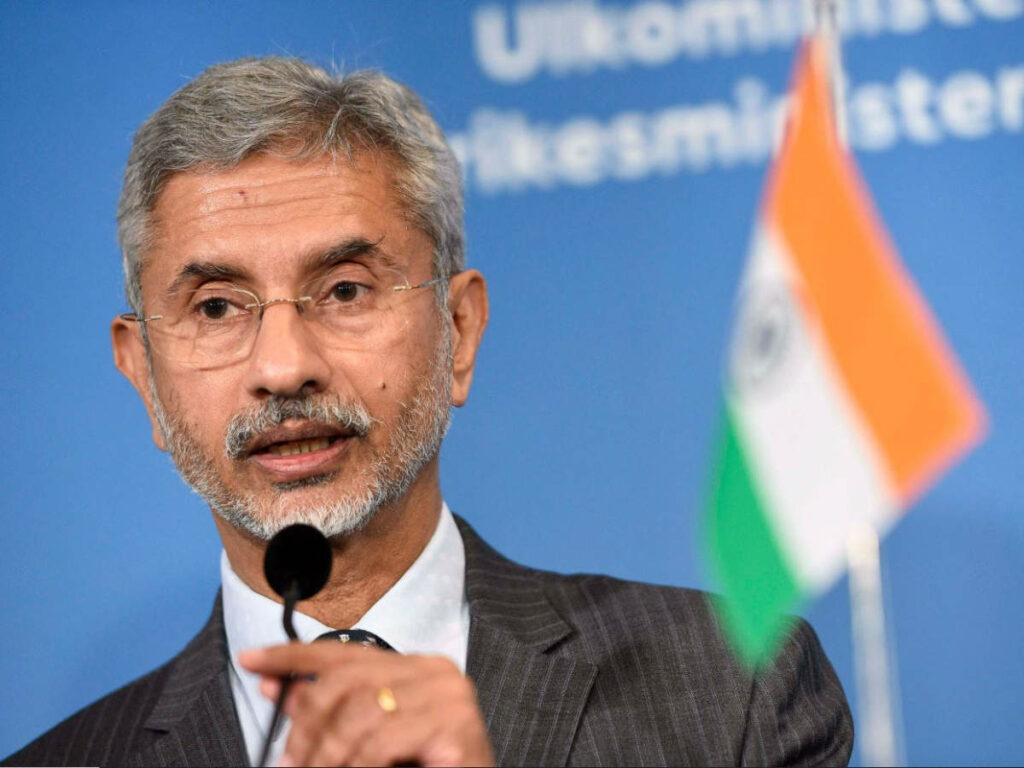NEW DELHI, Oct 12: The external affairs minister S Jaishankar has urged the international community to unite against the menace of terrorism as seriously as they did on issues like climate change and Covid pandemic. Without naming any country, he said cross border terrorism was no statecraft but simply another form terror activity and must be addressed seriously.
Addressing the 6th meeting of the Foreign Ministers of the Conference of Interaction and Confidence Building Measures in Asia (CICA) at Kazakhstan, Jaishankar also made an oblique reference to China’s ambitious infrastructure development plans in Pakistan under the China-Pakistan Economic Corridor (CPEC) and recorded India’s objections against it asserting that connectivity must respect the most basic principle of international relations-respect for sovereignty and territorial integrity.
“If peace and development is our common goal, the biggest enemy we must overcome is terrorism. In this day and age, we cannot countenance its use by one state against another. Cross-border terrorism is not statecraft; it is simply another form of terrorism,” he told the gathering without naming any country.
He said the international community “must unite against this menace, as seriously as it does on issues like climate change and pandemics. Any calculation that extremism, radicalisation, violence and bigotry can be used to advance interests is a very short-sighted one. Such forces will come back to haunt those who nurture them. Lack of stability will also undermine our collective efforts to get Covid under control. The situation in Afghanistan is, therefore, of grave concern,” he said.
Jaishankar had earlier this week said India was closely following the developments in Afghanistan and underscored the importance of the Taliban regime meeting the expectations of the international community as elaborated in the UN Security Council Resolution 2593.
The UNSC resolution 2593 unequivocally demands that Afghan territory not be used for sheltering, training, planning or financing terrorist acts; and specifically refers to terrorist individuals proscribed by the UN Security Council, including Lashkar-e-Taiba and Jaish-e-Mohammad.
India has called for ensuring that no country “tries to take advantage of the delicate situation in Afghanistan and use it for its own selfish interests.” Jaishankar said the voice of the CICA can play a positive role in shaping global response towards the developments in Afghanistan. “Highlighted that Afghanistan developments have generated understandable concern. Voice of CICA can be a positive factor in shaping a global response,” he tweeted.
In his speech, Jaishankar also said promotion of economic and social activity was intrinsic to progress and prosperity. Asia, in particular, suffers from a deficit of connectivity which was so essential for that purpose, he added. “As we build these modern arteries of commerce, it is absolutely essential that the most basic principles of international relations are observed. Respect for the sovereignty and territorial integrity of nations rank foremost among them,” he said, amid China’s aggressive behaviour in the Indo-Pacific region.
The CPEC, which connects Gwadar Port in Balochistan with China’s Xinjiang province, is the flagship project of Chinese President Xi Jinping’s ambitious Belt and Road Initiative (BRI). Originally valued at USD 46 billion, the CPEC projects were worth USD 62 billion as of 2017. India has protested to China over the CPEC as it is being laid through PoK.
“It is also important that connectivity building is a participative and consensual exercise, based on financial viability and local ownership. They must not serve other agendas,” he said.
China is engaged in hotly contested territorial disputes in the South and East China Seas. Beijing has also made substantial progress in militarising its man-made islands in the past few years.
Jaishankar also underlined the forum’s relevance in addressing contemporary challenges, including pandemics and protection of global commons. “Even as the world seeks to overcome the pandemic, there are equally pressing challenges it must address. Climate action ranks high among them. In many ways, the mind-set required is similar if we are to decisively forge ahead. Both pandemic and climate change require genuine and sincere international collaboration. They must ensure accessibility and affordability, especially to the most vulnerable. And they are a call for us all to adopt a more sustainable lifestyle,” he said.
Noting that the post-pandemic world requires resilient and reliable supply chains, he said, “it encourages additional engines of economic growth. It also puts a premium on greater trust and transparency. CICA can make a notable contribution to all these endeavours that will enhance security and sustainable development in Asia.”
(Manas Dasgupta)

